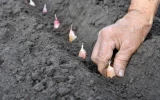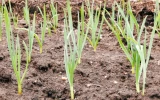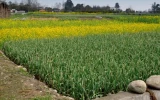How Deep Can You Plant Hardneck Garlic?
The ideal planting depth for hardneck garlic can vary based on climate and soil conditions. But in general, it should ensure that the cloves are adequately insulated against temperature fluctuations and have sufficient space to develop robust roots, setting the stage for a prosperous growing season.
Hardneck garlic should be planted about 2 to 3 inches deep in well-drained soil. This depth ensures adequate insulation from cold temperatures, promotes proper root development, and helps stabilize the plant as it grows. Consider spacing the cloves about 6 inches apart for optimal growth.
When you're planting hardneck garlic, you might think the deeper, the better, right? But here's the twist: If you plant them too deep, they might struggle to sprout through the surface. Conversely, planting them too shallow can put them at risk from cold temperatures and pests.
Summary
- The optimal depth for planting hardneck garlic varies with climate, suggesting a depth of 2 to 3 inches in general, but specifically 2 inches deep in warm climates and 3 to 4 inches deep in cold climates.
- For sandy soil, a deeper planting depth of around 6 inches is recommended to ensure stability and prevent the cloves from drying out too quickly due to the soil's quick drainage capabilities.
- In clay soil, a shallower planting depth of about 4 inches is advised to avoid potential waterlogging, which could harm the bulbs.
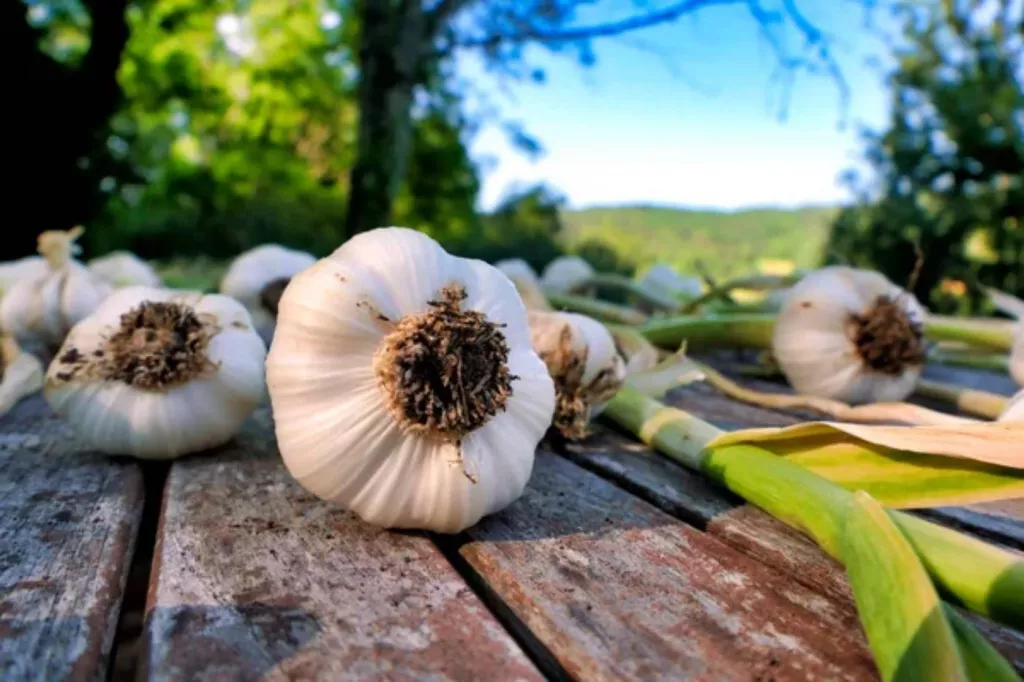
On this page:
Optimal Depth Guidelines for Planting Hardneck Garlic
For optimal growth, a depth of 2 to 3 inches is typically recommended when planting hardneck garlic. This depth helps to protect the cloves from temperature extremes and allows for adequate root development.
Ideal planting depth based on climate
Here's a simple guide for planting depth based on climate:
| Climate | Planting Depth |
|---|---|
| Warm Climates | 2 inches deep |
| Cold Climates | 3 to 4 inches deep |
In cold climates, consider planting up to 4 inches deep to provide extra insulation against harsh winter conditions.
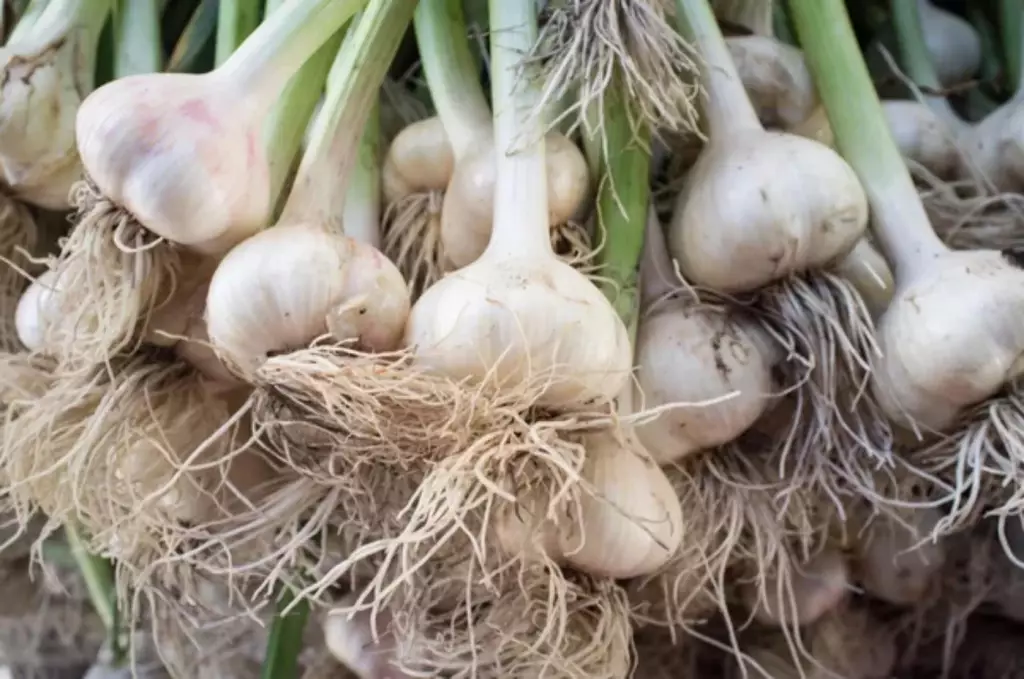
Conversely, in warm climates, a shallower depth helps prevent the cloves from overheating. Always ensure the pointy end of the garlic clove is facing up when planting.
The type of soil plays a role, too. Well-draining soil with a pH level between 6.0 and 7.0 is ideal for garlic. You'll want to plant your hardneck varieties in full sun to ensure they receive enough light for strong growth.
Spacing between each garlic clove should be about 6 inches apart and rows spaced 12 inches apart to provide enough room for the plants to mature.
Remember, hardneck garlic is different from softneck garlic, and while the planting depth for both can be similar, hardneck varieties often prefer cooler growing conditions and a slightly deeper planting.
Plan your garlic planting time accordingly, aiming for fall, so your garlic can establish roots before the spring growth period.
How Deep to Plant Hardneck Garlic in the Fall
When you're ready to plant hardneck garlic in the autumn, you'll want to aim for a planting depth of 2 to 3 inches. By doing so, you provide ample coverage for the garlic cloves, protecting them from harsh winter temperatures.
Here are simple guidelines to ensure you plant at the right depth:
- Cloves: Plant them pointy-end up, flat-side down.
- Spacing: Keep each clove approximately 4 inches apart to avoid competition for nutrients.
- Rows: Space rows about one foot apart, aiding in proper air circulation and growth.
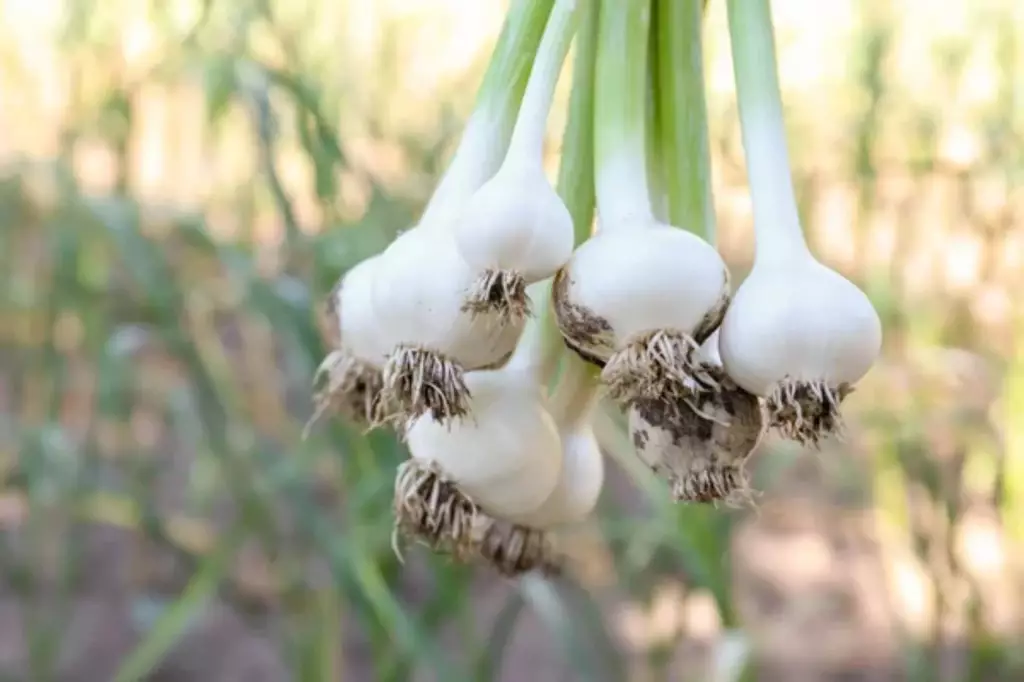
To aid in insulation against the cold, consider applying a layer of mulch after planting. Suitable mulches include shredded leaves, hay, or straw.
This not only keeps the soil temperature more consistent but also helps to retain moisture, reducing the need for frequent watering.
Remember, while proper planting depth is necessary, you also need to plant your garlic in well-draining soil. Excess moisture, especially in colder climates, can lead to rot, so ensure your planting site does not hold water.
With these steps in mind, your garlic is set to establish strong roots and thrive as the seasons change.
How Deep to Plant Hardneck Garlic in Pots
When planting hardneck garlic in pots, you'll want a container at least 6 inches deep, but a little deeper is ideal for strong root development. Here’s a straightforward guide to getting the depth right:
- Select a pot: Choose a pot with a minimum depth of 6 inches. More depth encourages better root growth.
- Soil preparation: Fill your pot with well-draining, fertile soil.
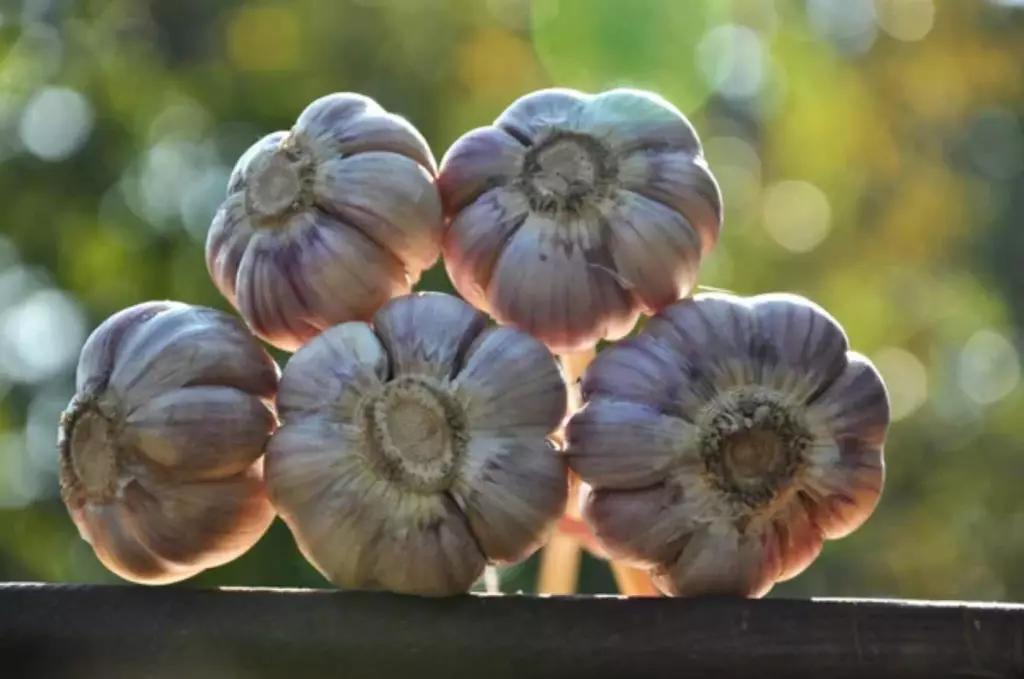
Steps in planting hardneck garlic in pots
- Make holes about 2 inches deep.
- Place a garlic clove with the pointy end up into each hole.
- Cover gently with soil, ensuring the cloves are not crushed.
Remember to space your garlic cloves about 6 inches apart to give them enough room to grow. After planting, provide a thorough watering to settle the cloves into their new environment.
You may find additional details on the ideal planting methods for growing garlic in pots to help you along the way.
Quick tip: A moderate amount of water is key. Garlic hates soggy soil, so it’s vital to ensure your pot has proper drainage.
Planting Too Shallow or Too Deep
If you plant too shallow, your garlic bulbs are at risk from cold temperatures and pests like thrips or onion maggots.
The garlic may also sprout prematurely, exposing tender shoots to harsh frost which can damage or kill the plant. Additionally, shallow planting can result in smaller bulbs and fewer cloves.
Conversely, planting too deep can hinder sprouting or cause the garlic to rot due to excess moisture and poor light exposure.
In heavier clay soil, deep planting may compound drainage issues, contributing to fungal diseases like white rot and mold. Your garlic harvest could be jeopardized by such conditions.
A balanced approach is best:
- In sandy soil, aim for 2 inches deep.
- In clay soil, target 3 inches deep.
- Ensure the garlic bed is well-drained and enriched with compost or organic fertilizer.
- Add mulch like straw or leaves to insulate against cold and retain moisture without waterlogging.
Remember, the correct planting depth helps protect from frost, supports overwintering, and contributes to a successful garlic harvest.
Your care in planting will result in robust bulbs ready for curing, propagating, or storing with reduced chances of rot or diseases.
Adjusting Depths in Varying Soil Types
When planting hardneck garlic, like the popular rocambole or purple stripe varieties, the depth can vary depending on the soil type in your garden.
Your aim is to provide the best start for the garlic bulbs, which will eventually produce flavorful scapes and optimal yields come harvest time.
Ideal planting depth based on soil type
| Soil Type | Planting Depth | Key Points |
|---|---|---|
| Sandy soil | 6 inches deep | Provides stability and prevents the garlic from drying out too quickly. |
| Clay soil | 4 inches deep | Avoids waterlogging, which could harm the bulbs. |
For sandy soil, go deeper—about 6 inches. This provides stability and prevents the garlic from drying out too quickly.
In contrast, with clay soil, shallower planting—around 4 inches—is recommended to avoid waterlogging, which could harm the bulbs.
An added layer of mulch can help retain moisture and provide support. This can be critical if you're located in colder hardiness zones where hardneck garlic thrives.
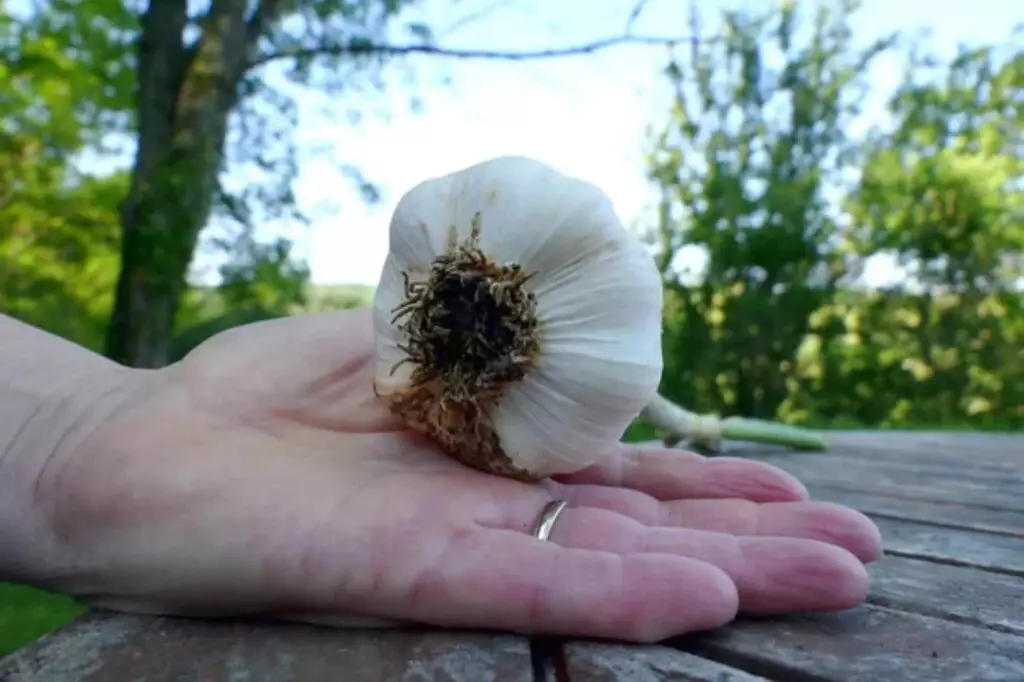
By maintaining the right depth and adding mulch, your efforts support the garlic's need for consistent moisture and direct sunlight.
Remember, your garlic also needs nutrients to grow strong. Use an organic fertilizer high in nitrogen earlier in the growing season to promote leafy growth, which in turn, feeds the bulbs.
As a perennial plant, properly planted garlic will reward you with a robust companion to your garden ecosystem, deterring pests like nematodes and requiring less intervention from pesticides.
